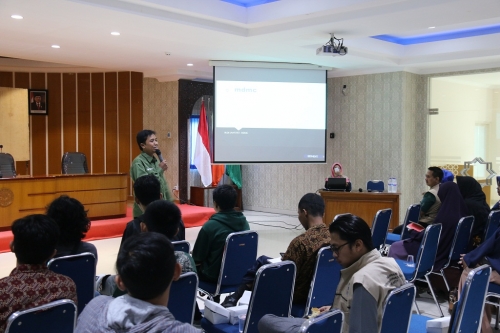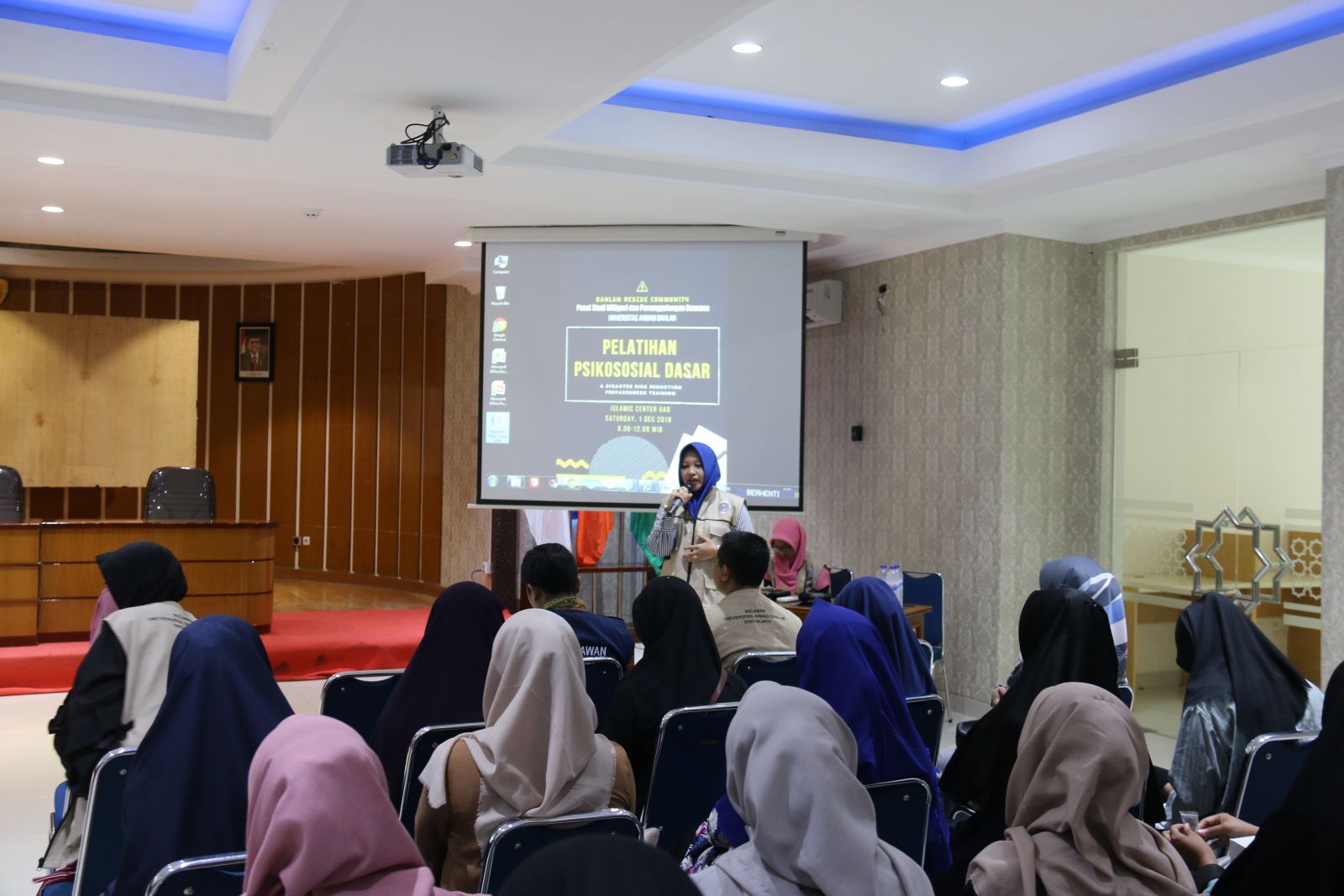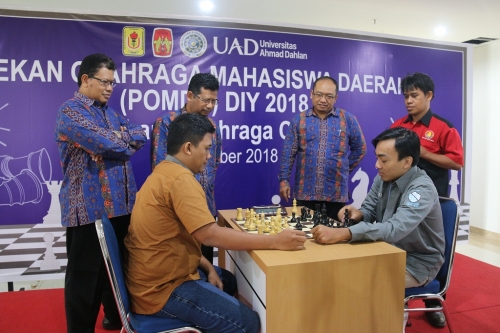UAD PSMPB Holds Psychosocial Training
Disaster Prevention and Mitigation Study Center (PSMPB) of Universitas Ahmad Dahlan (UAD) held basic psychosocial training for student volunteers at the Islamic Center hall of UAD campus 4 on Jln. Ring Road Selatan, Tamanan, Banguntapan, Bantul, on Saturday (1-12-2018). This training presented Budi Santosa, S.Psi., who is the Chairperson of Disaster Risk Reduction and Preparedness (PRBK) division of Muhammadiyah Disaster Management Center (MDMC), as the speaker.
Dholina Inang Pambudi, M.Pd., the Head of UAD PSMPB, said that the activity, which was attended by 50 participants, aimed to provide understanding and basic knowledge about the principles and stages of first-aid psychology in a disaster-affected area. Moreover, the most important thing is that UAD volunteers have the skills and capacity and are ready to be deployed to the field.
"We hope that UAD volunteers apply their knowledge on disaster when they go to disaster-affected locations. As volunteers, they are expected not to build boundaries with the people as they must be able to blend in with affected residents. They also have to blend in with other volunteers," explained Dholina.
On the other hand, Budi said that psychosocial skills were also important to provide assistance to children and residents who were psychologically affected. "When a disaster occurs, the children affected are allowed to be sad. However, on the next day, they have to be cheerful again."
The psychosocial impacts of natural disasters include physiology, feelings, thoughts, behavior, and social relations. Factors affecting psychological vulnerability are personality, gender and age, type of disaster, severity of the disaster, previous experience, network availability, and social support.
"Psychosocial activities at each post-disaster stage are the emergency response phase, the initial and final recovery phase, and the reconstruction phase. Volunteers must be able to reduce unpleasant feelings in children, foster their enthusiasm, and bring children back to the routine. They also need to describe psychosocial support plan in learning."(Ard)





